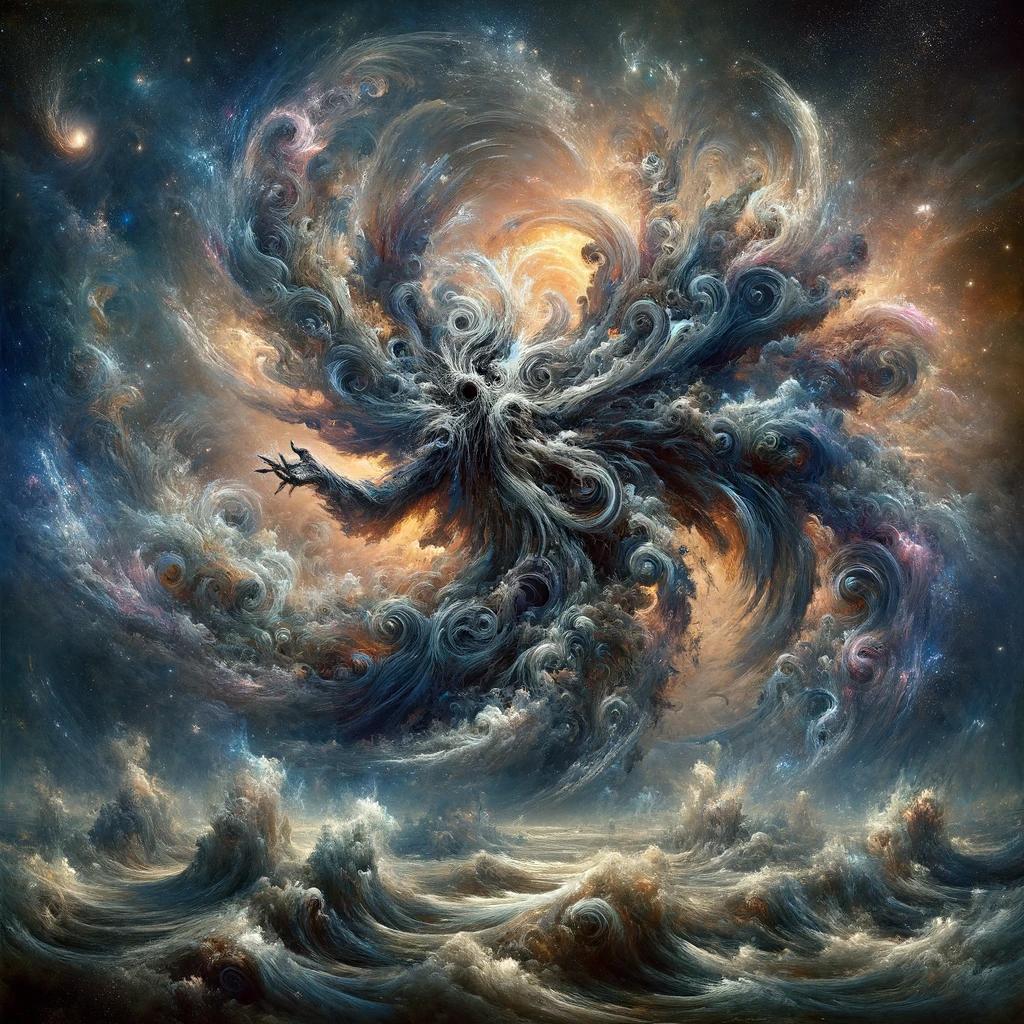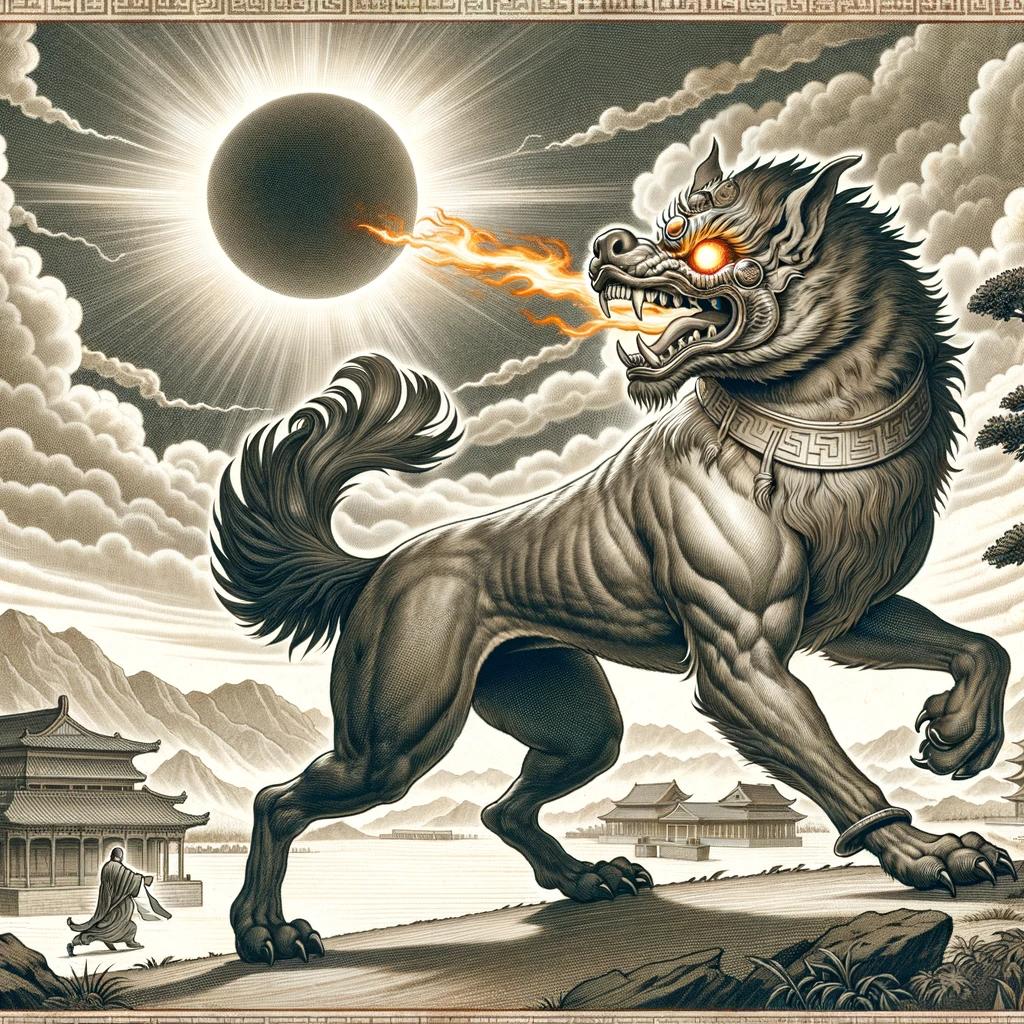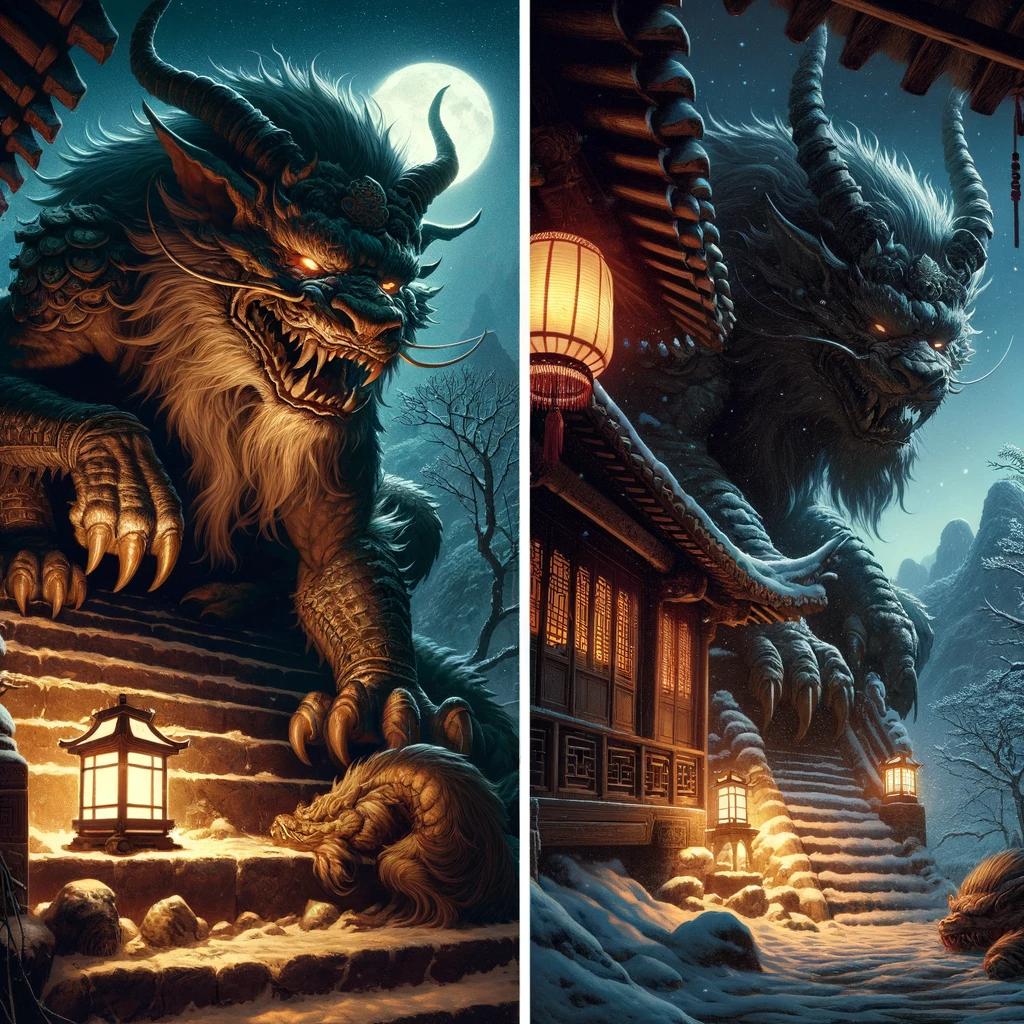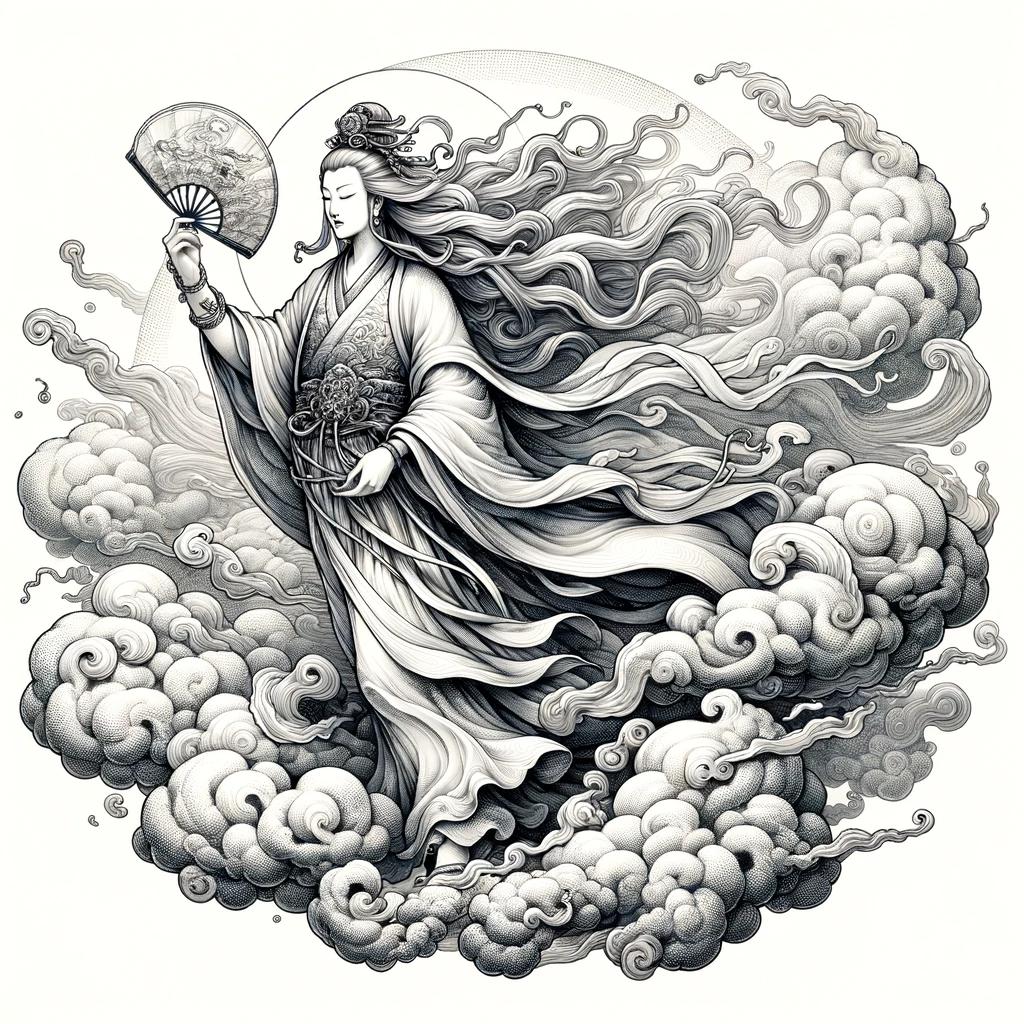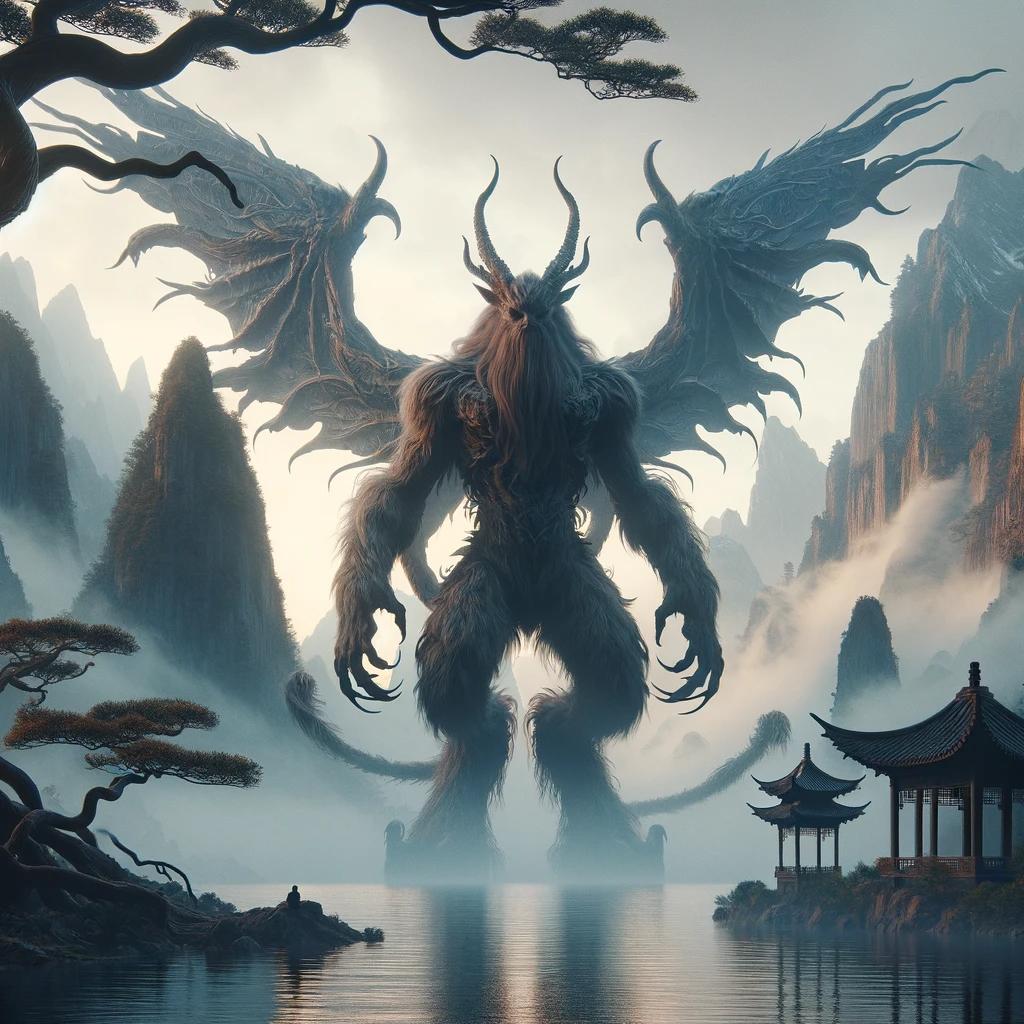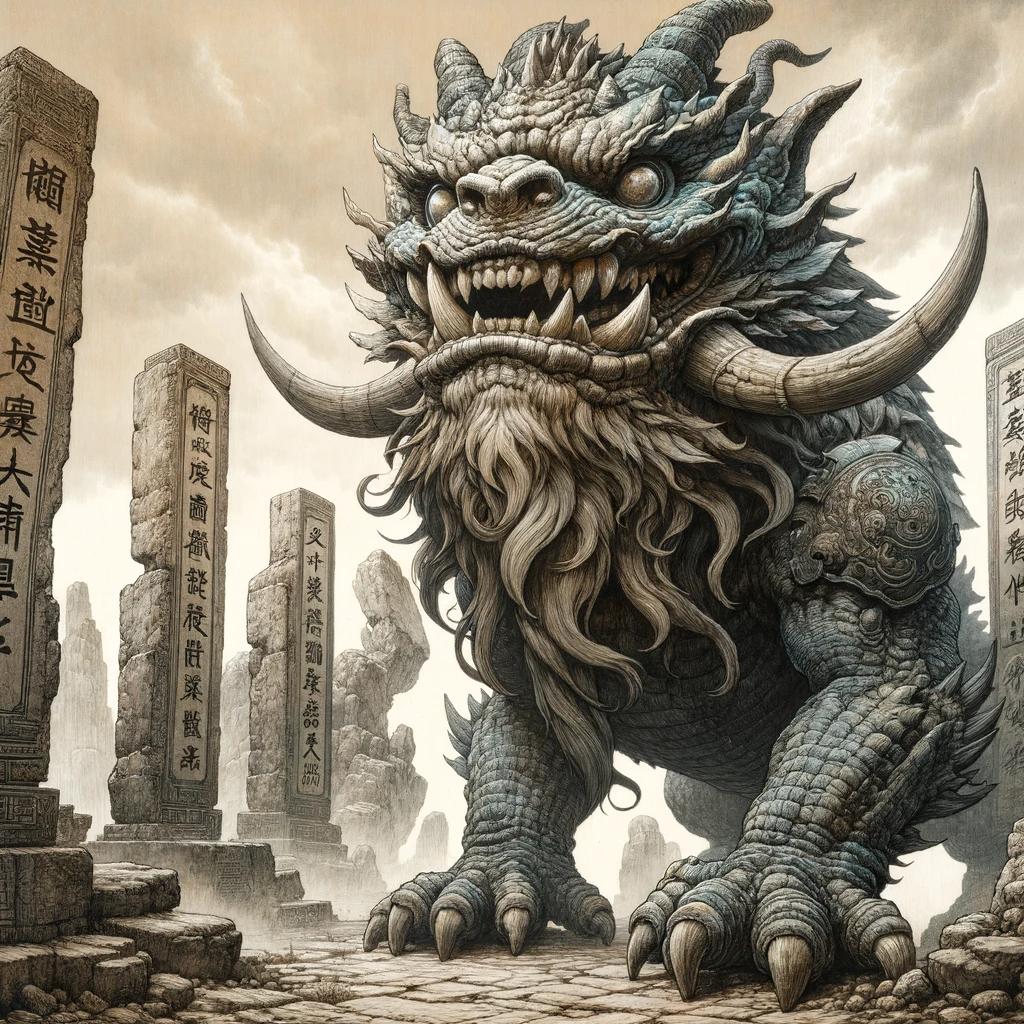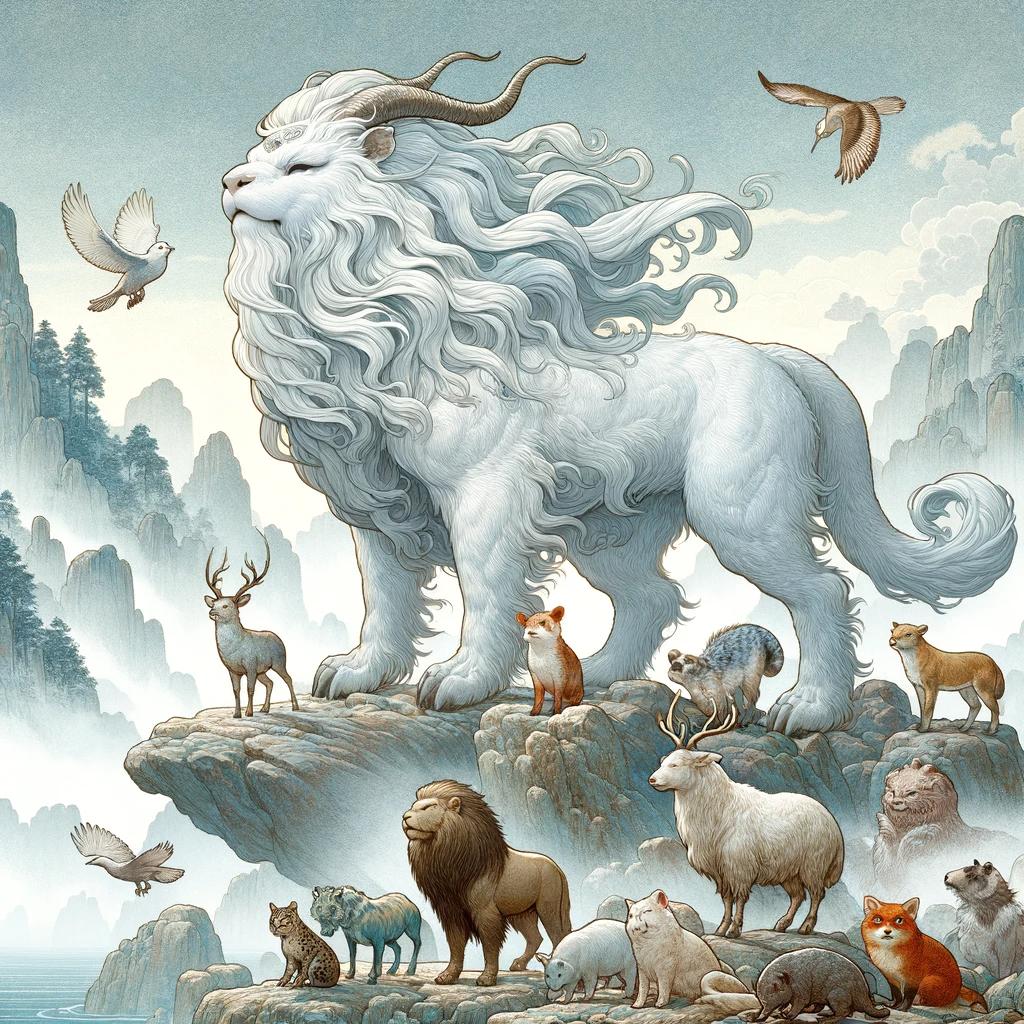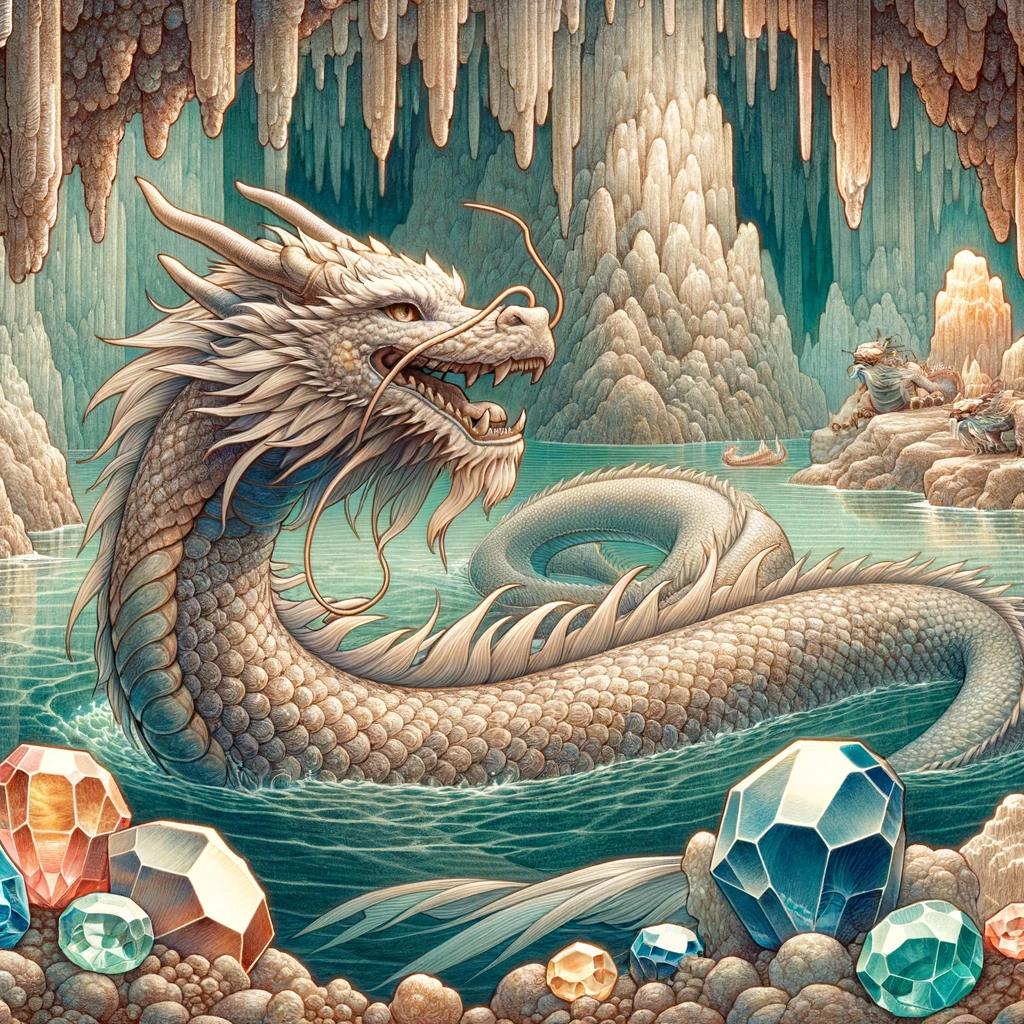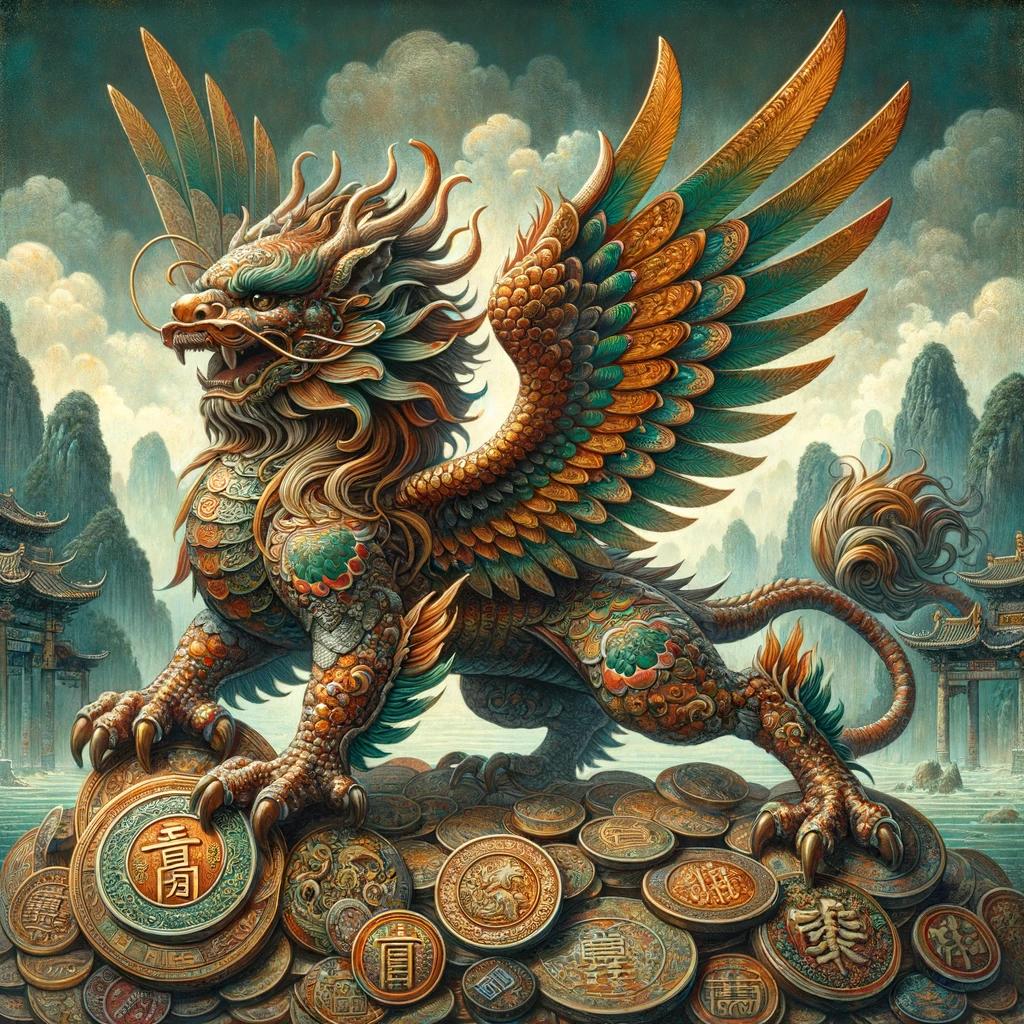Hundun Chinese Mythology: Exploring the Chaotic Nature and Origins
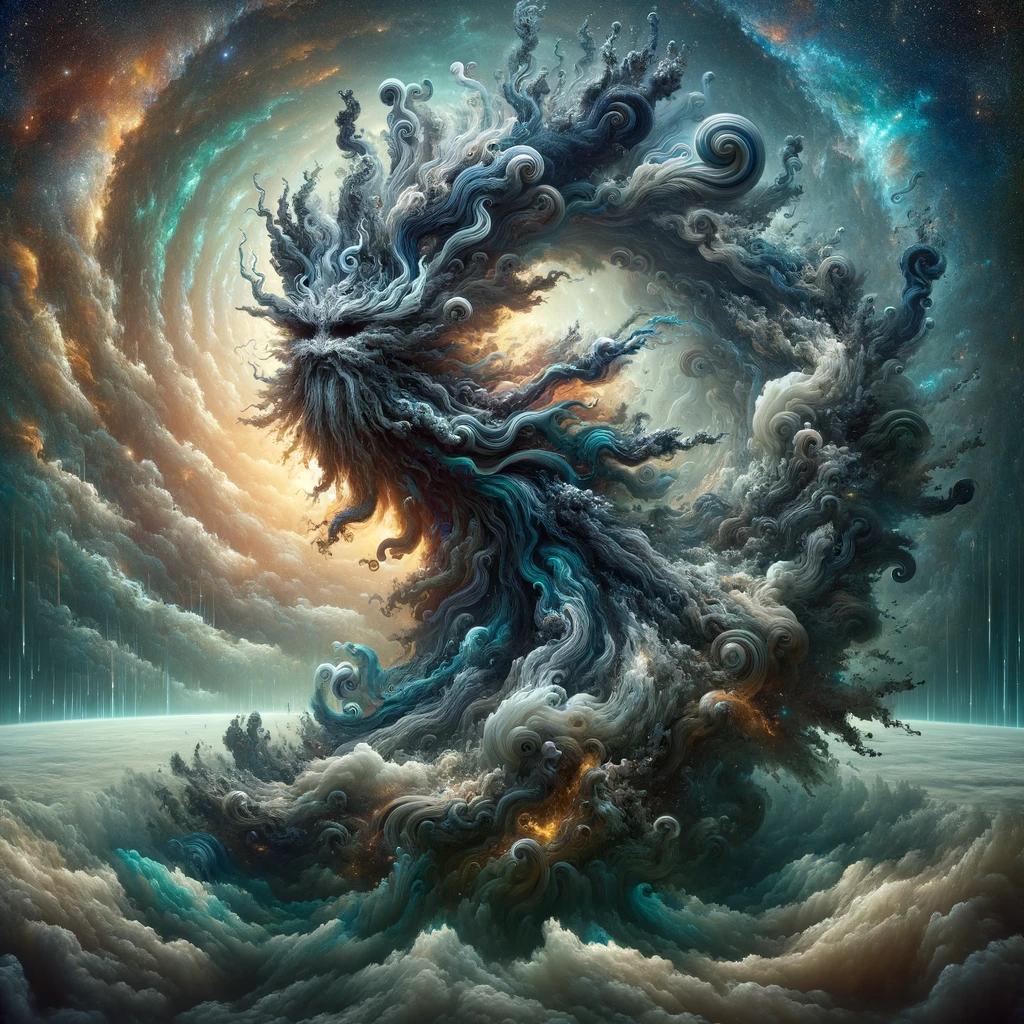
Hundun Chinese Mythology: An exploration of the ancient deity associated with chaos and confusion in Chinese mythology. This article delves into the origins of Hundun, its significance in Chinese folklore, its portrayal in Taoist texts, and its influence in contemporary culture, including video games.
Unravel the mysteries surrounding Hundun and its symbolic representation of unity and interconnection in Chinese philosophy. Referencing key texts and cultural references, this article aims to shed light on the enigmatic nature of Hundun in Chinese mythology.
Understanding Hundun in Chinese Mythology
Welcome to the fascinating world of Hundun, an enigmatic entity in Chinese mythology that carries great significance. In this section, we will delve into the origin of Hundun, explore its significance in Chinese mythology, and unravel its role as the deity of chaos and confusion.
The Origin of Hundun
Hundun’s origin traces back to the primordial state before the creation of the world. It represents a formless and empty existence, shrouded in mystery. According to ancient texts, Hundun emerged before the heavens and the earth, symbolizing the limitless and undifferentiated state of being.
Significance of Hundun in Chinese Mythology
In Chinese mythology, Hundun holds great significance as the mother of the heavens and the earth, often associated with the Tao. It embodies the essence of the mysterious and formless, representing the unmanifested potential and ultimate source of all things.
Hundun’s presence underscores the interconnectedness and unity of the cosmos.
Hundun as the Chaos and Confusion Deity
Hundun is widely regarded as the deity of chaos and confusion in Chinese mythology. Its existence in texts like the Daodejing, Zhuangzi, and Liezi solidifies its role as the embodiment of disorder and disruption.
Hundun disrupts established norms, challenging the boundaries of the known world and opening doors to new possibilities.
Taoist Texts and Hundun
Taoist texts provide valuable insights into Hundun’s significance in Chinese mythology. Hundun is mentioned in several renowned texts, including the Daodejing, Zhuangzi, and Liezi.
Hundun in the Daodejing
In the Daodejing, Hundun is referenced in Chapter 25 as a formless entity that existed before heaven and earth. It is described as silent and empty, considered the mother of heaven and earth, and referred to as Tao.
Hundun in the Zhuangzi
The Zhuangzi associates Hundun with the Dao in various chapters. It portrays Hundun as a deep vessel that can never be filled, serving as the source of all things. It is believed to harmonize light and unite the world as a single entity.
Hundun in the Liezi
Hundun is also mentioned in the Liezi, another influential Taoist text. Although this text provides lesser-known details about Hundun, its inclusion further solidifies Hundun’s role in Chinese mythology.
These Taoist texts offer glimpses into the nature and symbolic relevance of Hundun in Chinese culture and mythology.
Hundun and the Creation of the World
Hundun, the deity of chaos and confusion in Chinese mythology, plays a crucial role in the creation of the world. This section explores Hundun’s significance as the primordial state before the existence of heaven and earth.
Hundun as the Primordial State
Hundun is described as a formless entity that existed prior to the creation of the world. It represents a state of shapelessness and emptiness, embodying the chaotic essence that precedes order and structure.
The concept of Hundun as the primordial state is deeply rooted in Chinese cosmology and provides a foundational understanding of the universe’s origins.
Hundun’s Association with Heaven and Earth
In Chinese mythology, Hundun is closely associated with the forces of heaven and earth. It is considered the mother of the universe, symbolizing the origin from which all things arise.
Hundun’s connection to these fundamental elements highlights its role as a catalyst for the birth and formation of the cosmos.
Hundun as the Mother of the Universe
As the mother of the universe, Hundun represents the nurturing and generative aspect of creation. It is seen as the source from which all life emerges, embodying the essence of fertility and abundance.
Hundun’s role as the mother figure emphasizes its significance in shaping the world and fostering the growth and development of all existence.
Hundun in Chinese Folklore and Culture
Hundun in Chinese Proverbs and Sayings
Hundun’s enigmatic nature and chaotic essence are reflected in Chinese proverbs and sayings. These expressions offer insights into its transformative power and philosophical significance. Some notable examples include:
- “Unlocking the Hundun’s secrets” – Referring to unraveling profound mysteries or gaining deep insights into the nature of existence.
- “Hundun’s void” – Symbolizing an empty or formless state, often used to describe a situation lacking direction or purpose.
- “Embracing the Hundun” – Encouraging embracing the unknown and finding harmony in chaos, reflecting the Taoist principle of Wu Wei.
Hundun’s Influence in Contemporary Culture
Hundun’s presence extends beyond ancient folklore, leaving its mark on contemporary culture.
This influence is notably seen in various forms of media, including video games, movies, and literature.
Hundun in Video Games
Video games have incorporated elements of Hundun into their narratives, captivating players with its formidable presence. For instance, the widely popular game God of War II depicts Hundun as a colossal monster, embodying chaos and serving as a formidable adversary for the protagonist.
Hundun in Movies and Literature
Similarly, Hundun’s mythological essence has inspired filmmakers and authors. Its intriguing nature and symbolic representation of the primordial state make it a compelling subject for storytelling. The influence of Hundun can be seen in movies and literature, where it serves as a catalyst for narrative exploration of chaos, creation, and the mysteries of the universe.
Overall, Hundun’s significance in Chinese folklore and culture is evident in its representation in proverbs and sayings, as well as its impact on contemporary media. Its mysterious and transformative nature continues to captivate audiences, providing profound philosophical themes for exploration.
5. Comparing Hundun with TaoWu in Chinese Mythology
Similarities and Differences between Hundun and TaoWu
In Chinese mythology, both Hundun and TaoWu hold significant roles as mythical beings. Although they differ in certain aspects, they share some striking similarities. Here are the key points of comparison:
- Hundun and TaoWu are both ancient deities originating from Chinese mythology.
- They represent different concepts, with Hundun embodying chaos and confusion, while TaoWu symbolizes universality and perfection.
- Both deities are associated with Taoist texts like the Daodejing, Zhuangzi, and Liezi, emphasizing their importance in Chinese philosophical and spiritual traditions.
- Hundun and TaoWu are often depicted as primordial entities that predate the creation of the world, signifying their significance in the cosmogony of Chinese mythology.
- While Hundun is described as a void, formless being, TaoWu is often represented as a cosmic tortoise or a mythological creature with an impermeable shell.
The Role of Hundun and TaoWu in Mythological Narratives
Within the mythological narratives of Chinese culture, Hundun and TaoWu play distinct roles:
Hundun’s Role:
Hundun represents the chaotic and formless state that precedes the creation of the world.
As the mother of heaven and earth, Hundun is viewed as the source of all existence. It harmonizes light and unifies the world into a single entity. Hundun is closely associated with the concept of the sage who speaks according to the Dao.
TaoWu’s Role:
TaoWu symbolizes the ultimate unification and perfection achieved through the Dao. As a cosmic tortoise, TaoWu supports heaven and earth and provides a foundation for the world. It represents the ideal state of existence and serves as a symbol of longevity, wisdom, and stability.
While both deities hold significant roles in Chinese mythology, Hundun embodies the pre-existing chaos before creation, while TaoWu epitomizes the perfect unity achieved through the Dao.
The Symbolism of Hundun in Chinese Philosophy
The concept of Hundun in Chinese philosophy carries deep symbolism, representing unity and interconnection within the natural world.
It is through these metaphoric associations that Hundun holds a significant place in Chinese philosophical thought.
Hundun as a Metaphor for Unity and Interconnection
Hundun is often seen as a metaphorical embodiment of the interconnectedness of all things. Just as Hundun cannot be filled and remains an eternal void, it signifies the boundless nature of existence itself.
This metaphor suggests that everything in the universe is interconnected and inextricably linked, forming a harmonious whole.
Through Hundun, Chinese philosophy emphasizes the concept of unity, recognizing that all beings and phenomena are interdependent and share a common essence.
This interconnectedness extends beyond human boundaries, encompassing nature, the cosmos, and the spiritual realms.
Hundun’s Representation of Nature and the Dao
Hundun’s representation extends to encompass the nature of the Dao, the underlying principle of the universe according to Taoist philosophy. It reflects the Dao’s state of formlessness and the inherent chaos that precedes creation.
Similar to the Dao, Hundun is not confined by specific forms or limitations, emphasizing its connection to the natural world and the mutable nature of existence. Hundun represents the primal state of potentiality, from which all forms and phenomena in the universe arise.
Chinese philosophy recognizes in Hundun a symbolic connection to the cyclical changes observed in nature, paralleling the ebb and flow of life, and the eternal interplay of yin and yang. This further highlights the dynamic and interconnected nature of existence.
- The symbolic representation of unity and interconnection
- Hundun as an embodiment of the interconnectedness of all things
- The eternal void of Hundun signifying the boundless nature of existence
- Hundun reflecting the interconnectedness of the universe
- Hundun symbolizing the interdependence of all beings and phenomena
- Hundun representing the nature of the Dao and its formless state
- The mutable nature of existence reflected in Hundun
- The cyclical changes observed in nature and their connection to Hundun
- Hundun’s parallelism with the dynamic interplay of yin and yang
Unveiling the Mysteries of Hundun
Exploring Hundun’s Hidden Meanings
Hundun, as a central figure in Chinese mythology, holds profound symbolism and hidden meanings.
By delving into the various interpretations and cultural contexts surrounding Hundun, we can begin to unravel the enigmatic nature of this deity. Hundun is often associated with the concept of formlessness and chaos before the creation of the world, representing the primordial state of existence.
This interpretation suggests that Hundun embodies the preexisting potential for all things to come into being.
Hundun’s Influence on Chinese Cosmology and Cosmogony
Hundun’s influence extends beyond mythology and into the realms of Chinese cosmology and cosmogony. The concept of Hundun not only illustrates the chaotic nature of the universe’s origin but also sheds light on the dynamic interplay between order and chaos.
It serves as a reminder that harmony and balance arise from the intermingling of opposites, reflecting the Yin-Yang philosophy deeply ingrained in Chinese culture. The exploration of Hundun’s influence in cosmological theories further elucidates the intricate relationship between cosmology, mythology, and philosophical systems in ancient China.
The Legacy of Hundun in Chinese Mythology
Hundun’s legacy endures in Chinese mythology as a symbol of interconnectedness and unity. It represents the fundamental interconnected nature of all beings and phenomena in the world. Hundun’s influence can be seen in contemporary Chinese culture, art, and literature, as well as its adaptation in various media, including video games and movies.
By examining Hundun’s lasting impact on Chinese mythology, we gain a deeper understanding of the cultural significance and enduring relevance of this complex deity in Chinese society.

